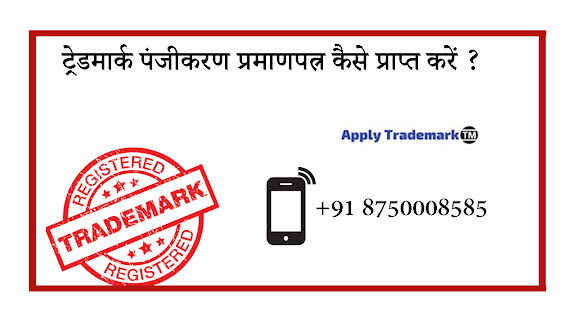How can I register my own company in India?
A company is
the most common type of business structure in India and has grown significantly
since the launch of the Startup India initiative. Now, business owners from all
over are swarming to the Ministry of Corporate Affairs to register their
companies. Why the sudden fascination? Is Registering a Company in India
worthwhile? The rationale for business registration in India is examined in
this article. Your business can hold real estate in its name and enjoy eternal
succession because it is a legal entity. It's crucial that you incorporate your
business with the Registrar of Companies if you want to register it as a
"distinct legal entity". This post will also lead you through a quick
registration process in India from the comfort of your home.
Let's simplify the difficult procedure of company registration into 7 easy stages.
Ø Step 1: Obtain a DSC: As soon as
registration is done online, the first thing to do is to get a DSC (DSC). DSC
makes sure that all of your electronic submissions are genuine and safe. You
will need to acquire a class 2, or a class 3 DSC, depending on the kind of
business. For assistance in obtaining a Digital Signature Certificate, one must
contact any of the Licensed Certifying Authorities.
Ø Step 2: Request a DIN: A unique 8-digit
number called a Director Identification Number (DIN) is given out in accordance
with Companies Act section 153. According to the Companies Amendment Act of
2006, all company directors must obtain a DIN in order to register the firm. If
your application is approved by the Central Government, you can submit it
online, and you should receive your DIN within a month.
Ø Step 3: In this you have to register
for an account on the MCA portal by the company's director. The director can
access the SPICe+ form to register the company after registering for the
portal.
Ø Step 4: Request for Name Availability: You
must request a distinctive name for your business. Always use a name for your
business that describes the goods or services you provide. If you don't adhere
to the MCA naming requirements, your application may be turned down. If you
already have a name in mind, you can use Legalraasta's company name search
feature to see if it is available.
Ø Step 5: Charter Document Submission: The
Memorandum of Association (MoA) and the Articles of Association (AoA) are
necessary documents before a business may be registered. The MoA is referred to
as the organization's charter. It outlines the fundamentals of the
organization's structure, its operations, and its goals. The MoA also outlines
how it interacts with the outside environment. AoA functions as the
organization's "user handbook." The rules and guidelines for managing
internal affairs, such as maintaining financial records and appointing
directors for business formation in India, are all mentioned.
Ø Step 6: Apply for a PAN and TAN: All significant transactions need
the use of the 10-digit alphanumeric Permanent Account Number (PAN). Through
the NSDL website or approved agents, submit an online PAN application. A tax
collector or deductor is given a Tax Deduction Identifier (TAN), a 10-digit
alphanumeric number that is crucial for filing TDS returns. You can apply for
your TAN card by going to the NSDL website. If you don't, you will be required
to pay a fee of 10000/-.
Ø Step 7: Certificate of Incorporation
(COI) Issues: The
MCA issues certificates for Company Registration.
Once you have it, it is official proof that the MCA was used to lawfully
incorporate your business. The Company Identification Number (CIN), PAN, TAN,
and DIN numbers are given to the Directors.
What is the Indian obsession surrounding company registration?
Ø A Separate Legal Entity is Created
Following Company Registration: A company is a distinct legal entity, in contrast to all
unregistered business entities in India. You give it a new identity as you
incorporate it with the help of your business advisers. It is comparable to
giving birth to a person in the business world. This person is capable of
owning property, possesses a PAN card, and a bank account.
Ø Director’s benefit from limited
liability: For
novice business owners, operating a company is simple when there is little risk
involved. They therefore favor a company that offers them little liability.
What does that imply? This indicates that a shareholder is only responsible for
losses up to the amount of his investment in the business. If the corporate
entity fails, none of his personal assets will be harmed. The majority of
business owners have had the guts to launch their ventures with vigor thanks to
this particular benefit.
Ø It can endure forever: The ability of the business entity
to continue to exist even after the director departs this world is one of the
significant advantages of online Company
Registration. The shares that belonged to the deceased might be transferred
to another party through share-transfer. By doing this, the Company leaves a
lasting legacy that endures long after the death of its founder.
Ø It's simple to transfer the shares: Due to the simplicity of share
transfers, a company has the benefit of continuous existence. Shares can
transfer from one shareholder to another with the simple consent of the board
at a single meeting. By attracting investors, the transferability factor also
aids business owners in growing their enterprise.
Ø Obtaining funding is simple: Obtaining funding is simpler for a
company. Additionally, if it is granted Startup Registration, it will have the
ability to get low-interest financing from banks. Additionally, because it is a
registered corporate entity, its investors can comfortably and worry-free
invest in it.
Ø It is simple to register a company: It is amazing how simple it is to
establish a company. The online and self-explanatory Company Registration Process is simple. To incorporate your
business entity, all you have to do is get in touch with a company secretary or
a chartered accountant, collect their contact information.
Conclusion
Everyone has
been bitten by the entrepreneurship bug ever since the Startup India project
was announced. No matter what kind of business someone runs or how big or
little their operation is, everyone wants to develop their business idea into
an organization, or a Company. You can receive numerous advantages from forming
a company in India, including the
ability to raise money, transfer shares, get tax breaks, and more. The
availability of Company Registration Services
in India has made it possible for business owners to emerge from hiding and
take the risk of forming an organization. If you are one among them, get advice
from our professionals. Finally, we have described the numerous steps needed to
register your business from the comfort of your home. We have also covered the
advantages of registering a corporation in India in this blog. We can quickly
register your company and provide the best incorporation services. Once you
have gotten your Certificate of Incorporation and PAN and TAN, you can formally
open a current bank account and start running your business. If you still find
the process challenging, consider asking the professionals at LegalRaasta for assistance in registeringyour organisation without any hassles.



.jpg)
Comments
Post a Comment